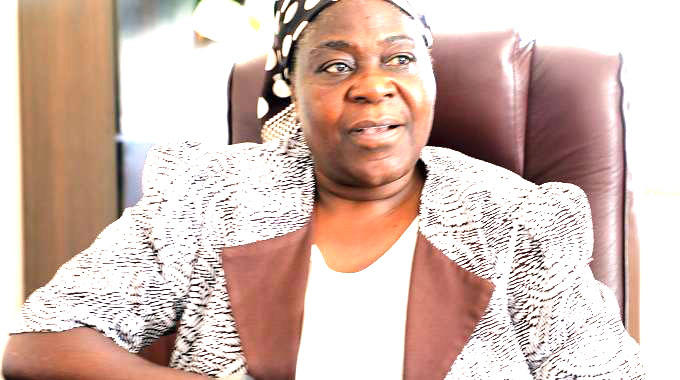EDITORIAL COMMENT : Appointment of Covid-19 coordinator laudable

The management of Covid-19 is now far from being just a health issue, involving as it does financial, productive, social, supply and educational concerns as well along with the need to have precise estimates of risk when setting policies to balance conflicting needs.
So, moving the coordination and central direction into the Office of the President and Cabinet becomes a necessity.
The pandemic, and its effects on all spheres of life, is the central issue facing the Government at this time and that requires a great deal of personal involvement by President Mnangagwa himself, as Head of Government, and the existing machinery in his office to ensure that all other Government units are pulling in the same direction.
In some ways, dealing with Covid-19 is a bit like fighting a major war.
While the ordinary machinery of Government can cope with the detailed administration of each sector, the central direction of policy and implementation is largely the job of whoever heads the Government.
And history shows that successful leaders fighting a war quickly bring in a top military professional to interface between the political and military leadership, with this person variously described as head of the high command, commander of defence forces, chairman of the chiefs of staff.
Some care is taken to select the right person, the criteria being a top professional respected by the professionals and trusted by the political leadership.
President Mnangagwa is following this rule and has moved Dr Agnes Mahomva from Permanent Secretary of Health and Child Care to his office as Chief Coordinator of the National Response to the Covid-19 pandemic.
Her experience means she is not just the top public health professional, but also showed in her previous post the clear and orderly mind needed in administration, and the dual abilities of professional and administrative competence are not as common as everyone would desire.
So the President now has his chief of staff. In some respects, she was already the senior health advisor to the Government on the pandemic, providing the professional advice on strategies to manage the pandemic. But now she can concentrate on that alone, and on ensuring these strategies are implemented, and on ensuring that the strategies are understood.
Someone else can now handle the other health administration matters, from the colour of the paint on the walls of a new ward to how to combat the latest outbreak of malaria.
The issues facing our new Chief Coordinator are immense.
The Government faces a series of potentially conflicting requirements.
Covid-19 has to be managed and beaten, but the economy cannot be allowed to collapse while this is being done, and there are issues ranging from ensuring we do not damage the education of children to how do we support those who cannot support themselves.
There is no single straightforward strategy.
To set a strategy, the Government needs to know, fairly precisely, the actual risks of each option, how those risks can be minimised or eliminated, and how risk can best be managed, with this final point needing seriously competent and innovative advice.
Then there is the implementation of policies.
Zimbabwe is quite good at generating policies, the problem has been to work out the practicalities of implementing these and doing that quickly.
And at times the policies do not always take into account the practical requirements of resources and options.
Delays arise; policies are announced without the required logistics, as we have seen in the need to test workers at re-opened businesses, and even to get them to work on time in safety.
Just sorting out the test kits requires detailed coordination between swathes of the public and private sectors, for example.
The easing of lockdown regulations provides another example. One condition is early closing of business. Is this the best solution, considering the need for safe public transport, or would some system of staggered closing times work better so workers could go home in batches?
In military terms, available resources and tactical planning quite often modify strategy, and someone, to be precise Dr Mahomva, has to figure out why and how.
This why “logistical, resource mobilisation, materials production and distribution, protective services and monitoring functions” are included in her brief as well as the purely medical and public health aspects.
Even the advice and rules given to the general public lack explanations. The triple requirement of face masks, social distancing and good personal hygiene are still just rules.
Perhaps more people would be willing to comply fully if they knew the reasons, such as masks stop you breathing viruses on others, with social distancing killing the ones that do escape your mouth and hand washing killing those that land somewhere else.
A lot of rules are not to protect just us, but to protect others from us, and this dual benefit needs to be explained.
Many in quarantine do not understand that dual benefit.
They know it protects others, but it also ensures that if they are infected this is known early, and perhaps they can then reflect that the four Zimbabweans who have died from Covid-19 were generally diagnosed very late and so did not have the best possible treatment in time.
President Mnangagwa has several times spoken about how the Covid-19 pandemic has mobilised many sections of Zimbabwean society.
That is pleasing, but more coordination would ensure all these thousands of individual, company and ministerial efforts were of maximum effect and all holes were filled.
We can achieve our fundamental aim, smashing Covid-19 without smashing our economy, but only if we all work together and pull together and implement clear workable policies built on the best advice. And that is why we needed and now have this new unit, and why we now all need to back it.









Comments